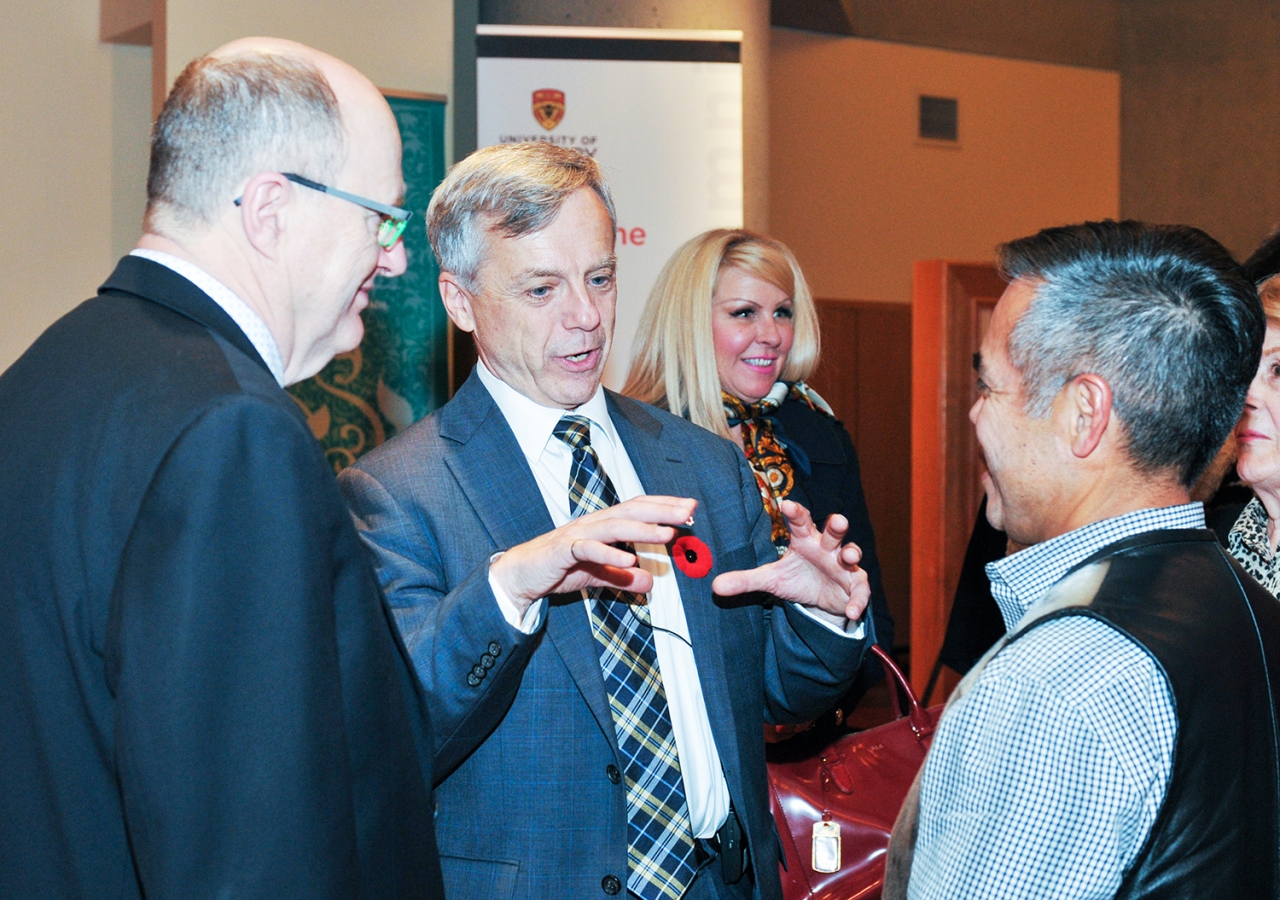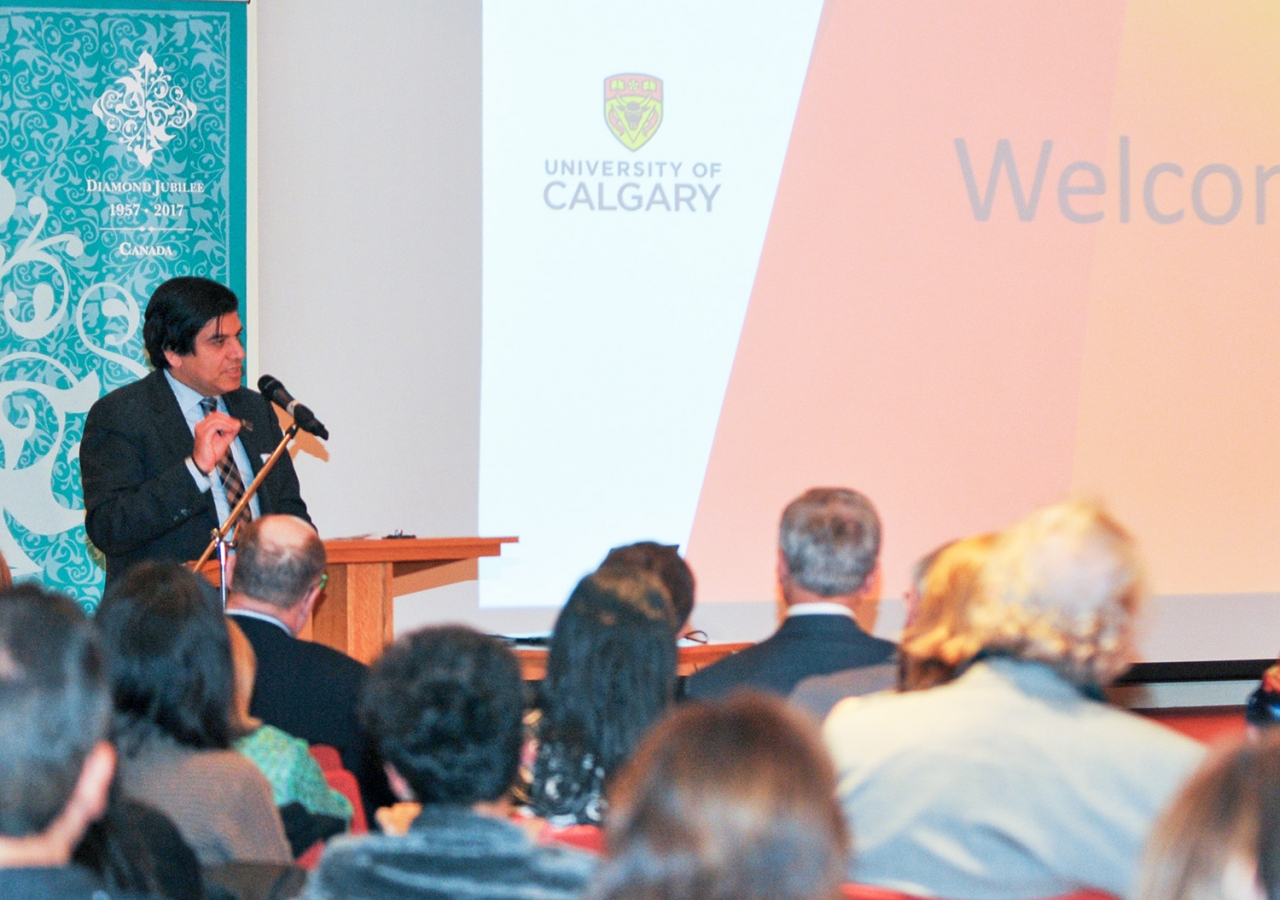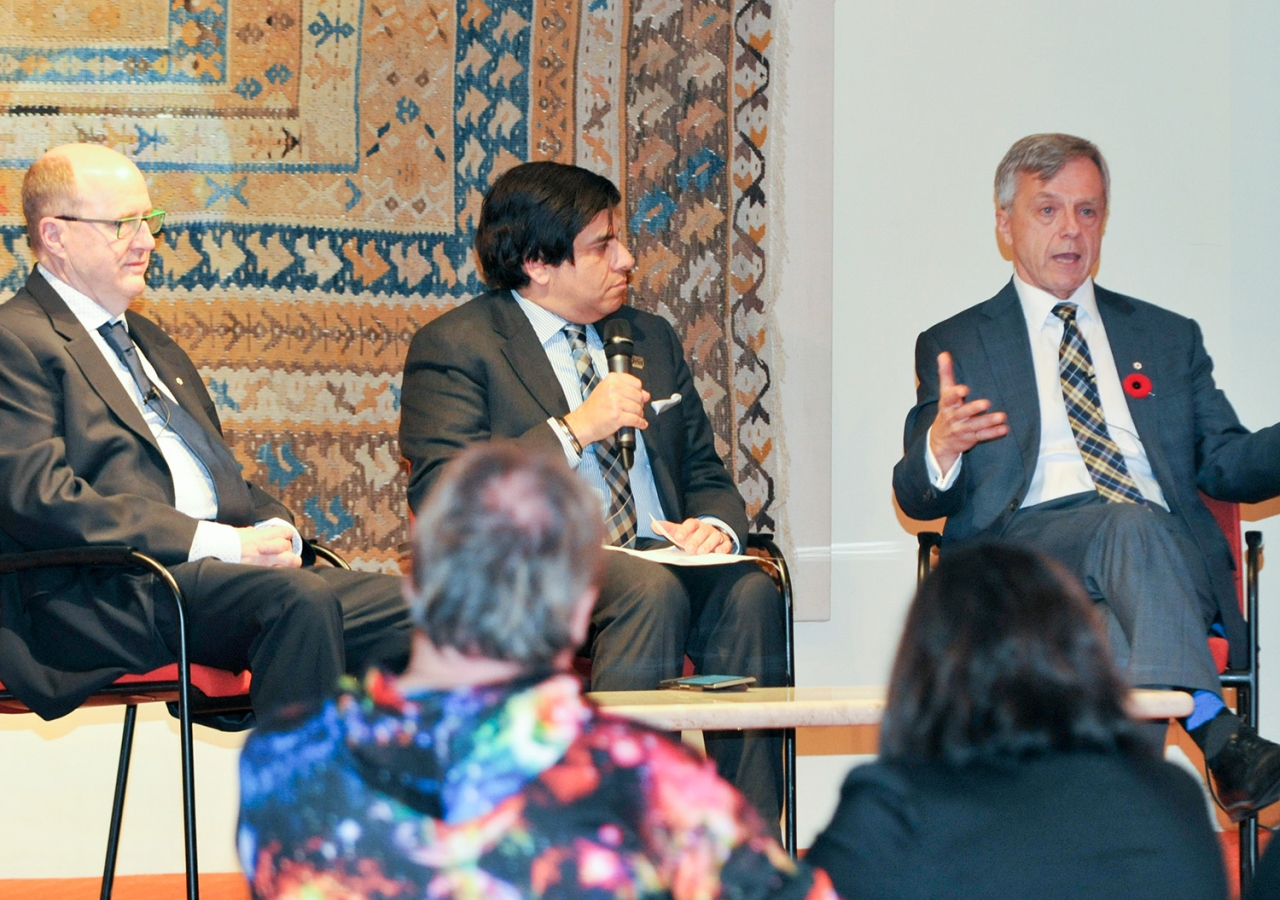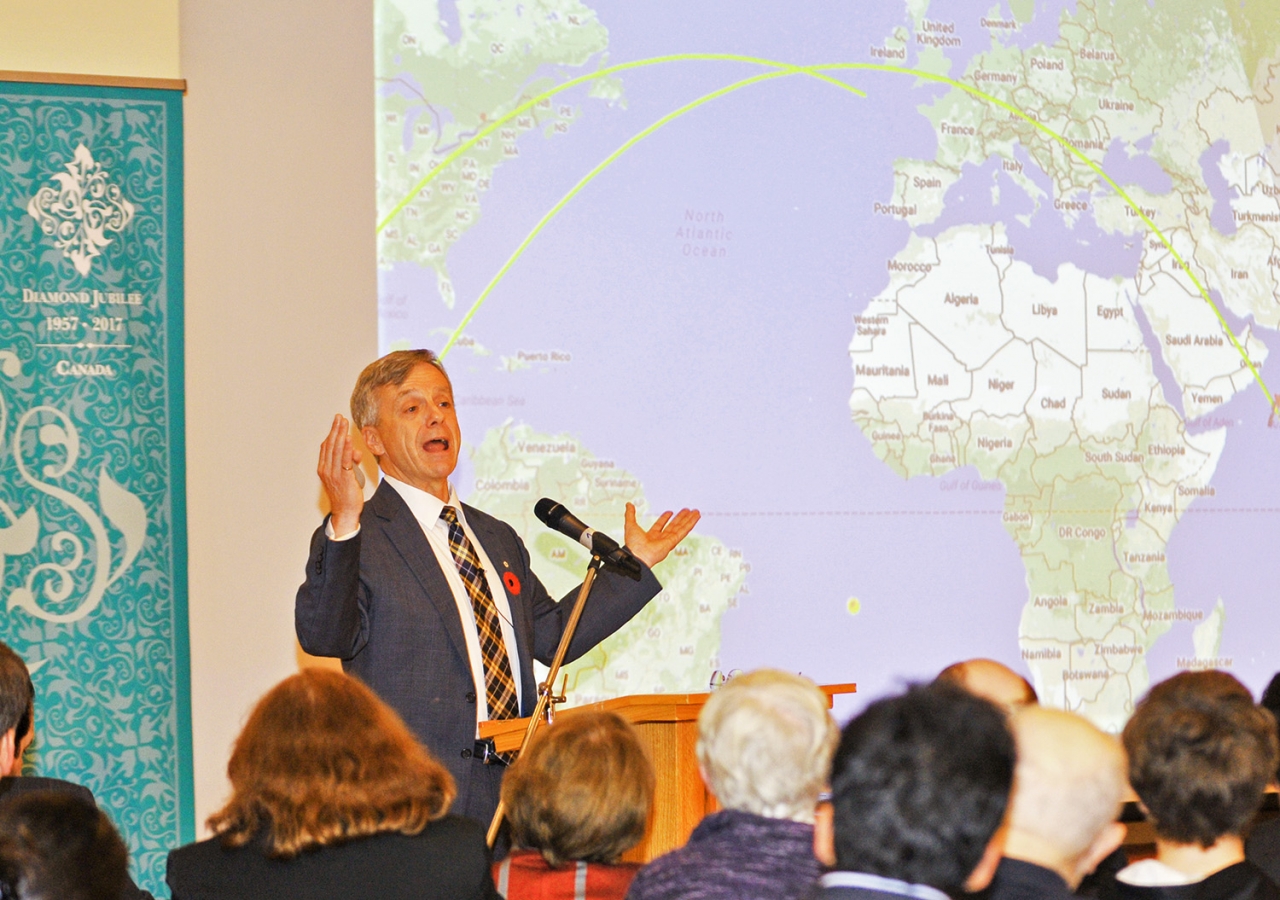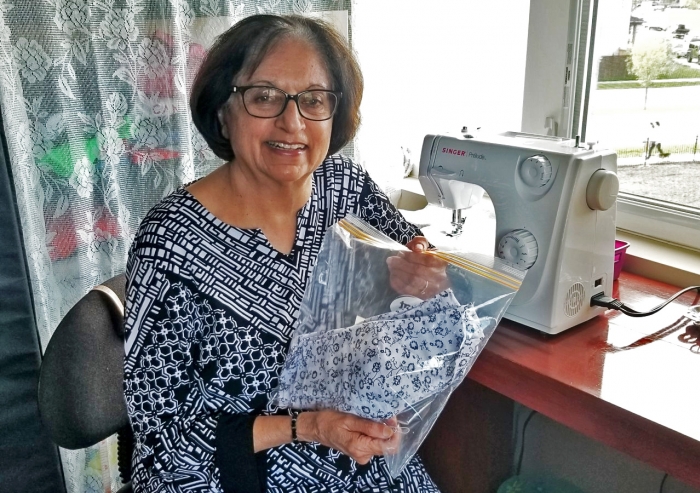Thirsk, who now serves as the Chancellor of the University of Calgary, spoke at length about his experiences as a member of the space shuttle Challenger’s crew and his time aboard the International Space Station. He served as a Challenger crew member in 1994 and spent six months on the International Space Station in 2009.
“What's most important to me [after having flown in space] is overpopulation, poverty, inequality, environmental damage – in other words, survival of our species and of nature,” said Thirsk.
“I never saw the Great Wall of China – because I never saw China. [It] is perpetually covered by pollution.”
Thirsk reflected on the interconnectedness of nature, ecosystems, and life on Earth.
“When something is perturbed we feel it all around the Earth,” he said. “Everything that's living on the planet – humans, plants, animals – is part of [a] whole. And every element of the whole is connected to every other part of the ecosystem as well: society, nature, business systems.”
He recounted his view from above of the “delicate blue film” preserving life as we know it – the Earth’s atmosphere – and observing the impact human activities have had: smoke from forest fires in Siberia affecting air quality in North America; topsoil erosion from unrestrained development clogging river deltas in Madagascar; and brush fires from illegal deforestation that were continuously visible in the Amazon rainforest.
Reflecting also on today’s climate of increased geopolitical tension, Thirsk mentioned how collaboration between formerly adversarial countries had made the International Space Station possible, calling the global partnership a “common bond” and “oasis of sanity” in a world that is increasingly polarized.
He sees space collaboration as a way to maintain dialogue between countries that would otherwise have political differences.
“We live in a world where there’s a lot of angry rhetoric from country to country,” he said. “Canada is involved in some of that rhetoric as well, but think of the countries that Canada is cooperating with in space. We aren’t letting [political disagreements] stop us from doing things.”
And what does the Canadian astronaut hope to see from humankind in the future?
“More awareness of humanity’s actions. If a country [dams] a river to provide hydroelectric power to its citizens, they’ve got to think there are people downstream that are affected. And not just people – also vegetation, wildlife, etc.”
Asked how he views his own role in this awareness, Thirsk describes himself as a spokesperson, saying he has been privileged to see how the planet operates from a perspective unavailable to people living on the surface.
“In a sense, I never returned from space”, he said. “Spaceflight changed the way I view society.”
Questions, comments, article suggestions? Contact the My Community Editor: [email protected]

